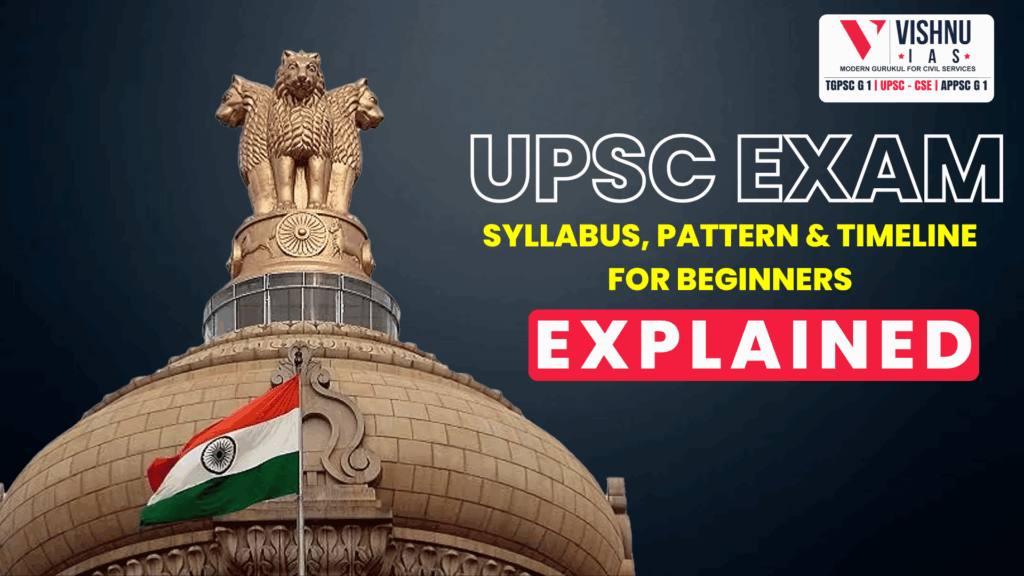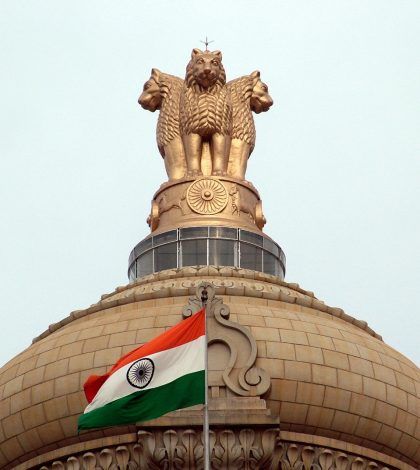UPSC Exam Explained: Syllabus, Pattern & Timeline for Beginners
The Union Public Service Commission (UPSC) Civil Services Examination (CSE) is one of the most prestigious and competitive exams in India. It serves as a gateway to elite services such as the Indian Administrative Service (IAS), Indian Police Service (IPS), Indian Foreign Service (IFS), and several other Group A and Group B services. For a beginner, understanding the exam in depth is crucial before diving into preparation. This blog aims to give a comprehensive overview of the UPSC exam, its pattern, syllabus, and timeline.
Overview of the UPSC Civil Services Examination
The UPSC CSE is conducted annually in three stages:
- Preliminary Examination (Prelims) – Objective in nature
- Main Examination (Mains) – Descriptive in nature
- Personality Test (Interview)
Only candidates who clear the Preliminary exam are eligible to appear for the Mains, and those who qualify the Mains are then invited for the Personality Test.
Eligibility Criteria
Before applying, candidates must ensure they meet the eligibility requirements:
- Nationality: For IAS and IPS, the candidate must be an Indian citizen.
- Age Limit: 21 to 32 years (General category). Age relaxation for OBC, SC/ST, PwD as per government norms.
- Educational Qualification: A degree from any recognized university.
- Number of Attempts: General – 6, OBC – 9, SC/ST – Unlimited (within age limit).
UPSC Exam Pattern
Stage 1: Preliminary Examination
The Prelims is a screening test and consists of two papers:
|
Paper |
Subject |
Marks |
Duration |
Nature |
|
Paper I |
General Studies (GS) |
200 |
2 Hours |
Merit-based |
|
Paper II |
CSAT (Aptitude) |
200 |
2 Hours |
Qualifying (33% required) |
- Note:The marks obtained in Paper I determine selection for Mains.
- Negative marking of 1/3rd per incorrect answer applies.
Stage 2: Main Examination
The Mains exam is descriptive and consists of 9 papers:
|
Paper |
Subject |
Marks |
|
Paper A |
Indian Language (Qualifying) |
300 |
|
Paper B |
English (Qualifying) |
300 |
|
Paper I |
Essay |
250 |
|
Paper II |
General Studies I |
250 |
|
Paper III |
General Studies II |
250 |
|
Paper IV |
General Studies III |
250 |
|
Paper V |
General Studies IV |
250 |
|
Paper VI |
Optional Paper I |
250 |
|
Paper VII |
Optional Paper II |
250 |
- Total Marks (for merit ranking): 1750
- Languages in Paper A: Any Indian language listed in the 8th Schedule of the Constitution
- Candidates must choose one optional subject from a list provided by UPSC.
Stage 3: Personality Test / Interview
- Marks:275
- It tests the candidate’s personality, leadership, communication skills, andsuitability for a career in civil services.
Final Merit List: Based on marks in Mains (1750) + Interview (275) = 2025 marks
UPSC Syllabus Overview
Prelims Syllabus
- General
Studies Paper I:- Current Affairs
- History of India and Indian National Movement
- Indian and World Geography
- Indian Polity and Governance
- Economic and Social Development
- Environmental Ecology, Biodiversity and Climate Change
- General Science
- CSAT
(Paper II):- Comprehension
- Interpersonal skills
- Logical reasoning and analytical ability
- Decision-making and problem-solving
- General mental ability
- Basic numeracy (Class X level)
Mains Syllabus
- Essay
Paper: Candidates write essays on multiple topics of national and
international relevance. - General
Studies Papers:- GS
I: Indian Heritage & Culture, History, and Geography of the World and Society - GS
II: Governance, Constitution, Polity, Social Justice and International Relations - GS
III: Technology, Economic Development, Biodiversity, Environment, Security and Disaster Management - GS
IV: Ethics, Integrity, and Aptitude
- GS
- Optional Subject: Two papers based on the chosen subject. E.g., Anthropology, Geography, Political Science, Sociology, etc.
UPSC Exam Timeline
|
Month |
Event |
|
January – February |
Notification & Application Process |
|
May – June |
Preliminary Examination |
|
15 days after exam |
Prelims Result |
|
September – October |
Mains Examination |
|
December – January |
Mains Result |
|
February – April |
Interviews Conducted |
|
April – May |
Final Result Declared |
Note: Dates may vary slightly each year. Candidates must refer to the official UPSC calendar.
Tips for Beginners
- Understand the Syllabus & Pattern: Download the official syllabus and read it thoroughly.
- Choose the Right Optional: Select a subject you’re comfortable with or have an academic background in.
- Follow Trusted Sources: Stick to standard books like NCERTs, Laxmikanth (Polity), Spectrum (Modern History), etc.
- Make Current Affairs a Daily Habit: Read newspapers and follow monthly current affairs compilations.
- Answer Writing Practice: Start early, especially after Prelims, for Mains.
- Take Mock Tests: Helps with time management and understanding the demand of the exam.
Conclusion
The UPSC Civil Services Exam is not just a test of knowledge but of perseverance, consistency, and clarity of purpose. With lakhs of aspirants appearing and only a few hundred selections, understanding the pattern and timeline is the first step toward focused preparation. Whether you’re a college student, working professional, or a full-time aspirant, with the right strategy and dedication, cracking UPSC is within your reach.
Stay consistent, stay updated, and most importantly, stay motivated!
All the Best for Your UPSC Journey!


